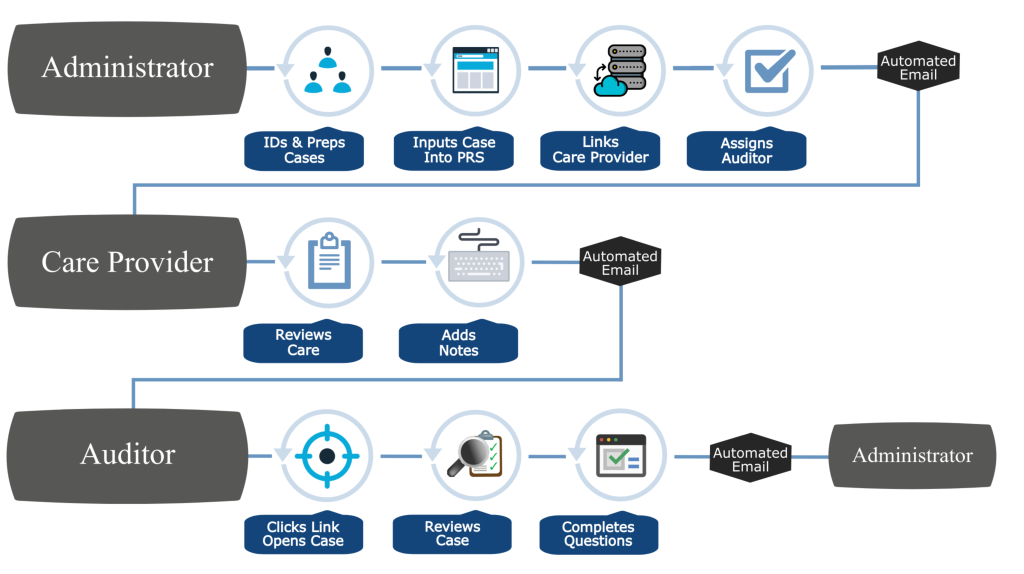Clinical peer review in modern performance management requires a secure, easy-to-use software system. Peer reviews are a form of performance evaluation that involve feedback from colleagues within the same profession or industry. In the healthcare industry, peer reviews are commonly used to evaluate the performance of clinical staff, including physicians, nurses, and other healthcare professionals.
The purpose of peer reviews is to provide feedback on performance, identify areas for improvement, and promote professional development. Peer reviews can be used to assess clinical competence, communication skills, teamwork, and other aspects of professional practice.
Peer reviews are typically conducted by colleagues who work in the same clinical setting, such as a hospital or medical practice. The reviewers may be assigned to evaluate a particular clinician, or they may be asked to provide feedback on a rotating basis.
Peer reviews can be conducted in a variety of formats, including in-person meetings, written evaluations, and online surveys. The feedback may be anonymous or attributed, depending on the specific process used.
Peer reviews can be an effective tool for performance management in modern healthcare organizations. By soliciting feedback from colleagues, healthcare organizations can gain a more comprehensive understanding of clinical staff performance, which can help identify areas for improvement and inform decisions about training and professional development.
Clinical Peer Review = Continuous Improvement Culture
Peer reviews can also help promote a culture of continuous improvement and learning within healthcare organizations. By encouraging clinicians to seek feedback from their peers, healthcare organizations can foster a culture of collaboration and shared learning that can benefit the entire organization.
There are some challenges associated with peer reviews, including concerns about bias and the potential for negative feedback to demotivate clinicians. To address these challenges, it is important to establish clear guidelines for conducting peer reviews and to provide training and support to reviewers.
Overall, peer reviews can be a valuable tool for performance management in modern healthcare organizations. By providing feedback on clinical performance, promoting professional development, and fostering a culture of continuous improvement, peer reviews can help healthcare organizations provide high-quality care to patients.
For more information about peer reviews of clinical staff and their role in modern performance management, please visit the following links:
The Joint Commission American Medical Association American Nurses Association
| Editor's Note: BHM Healthcare Solutions offers a comprehensive Clinical Peer Review System (CPRS). CPRS provides instutions with a one-stop, peer review platform with minimal user clicks and security. CLICK HERE for more information on CPRS or schedule your DEMO. |
Partner with BHM Healthcare Solutions
With over 20 years in the industry, BHM Healthcare Solutions is committed to providing consulting and review services that help streamline clinical, financial, and operational processes to improve care delivery and organizational performance.
We bring the expertise, strategy, and capacity that healthcare organizations need to navigate today’s challenges – so they can focus on helping others.
Are you ready to make the shift to a more effective process?
